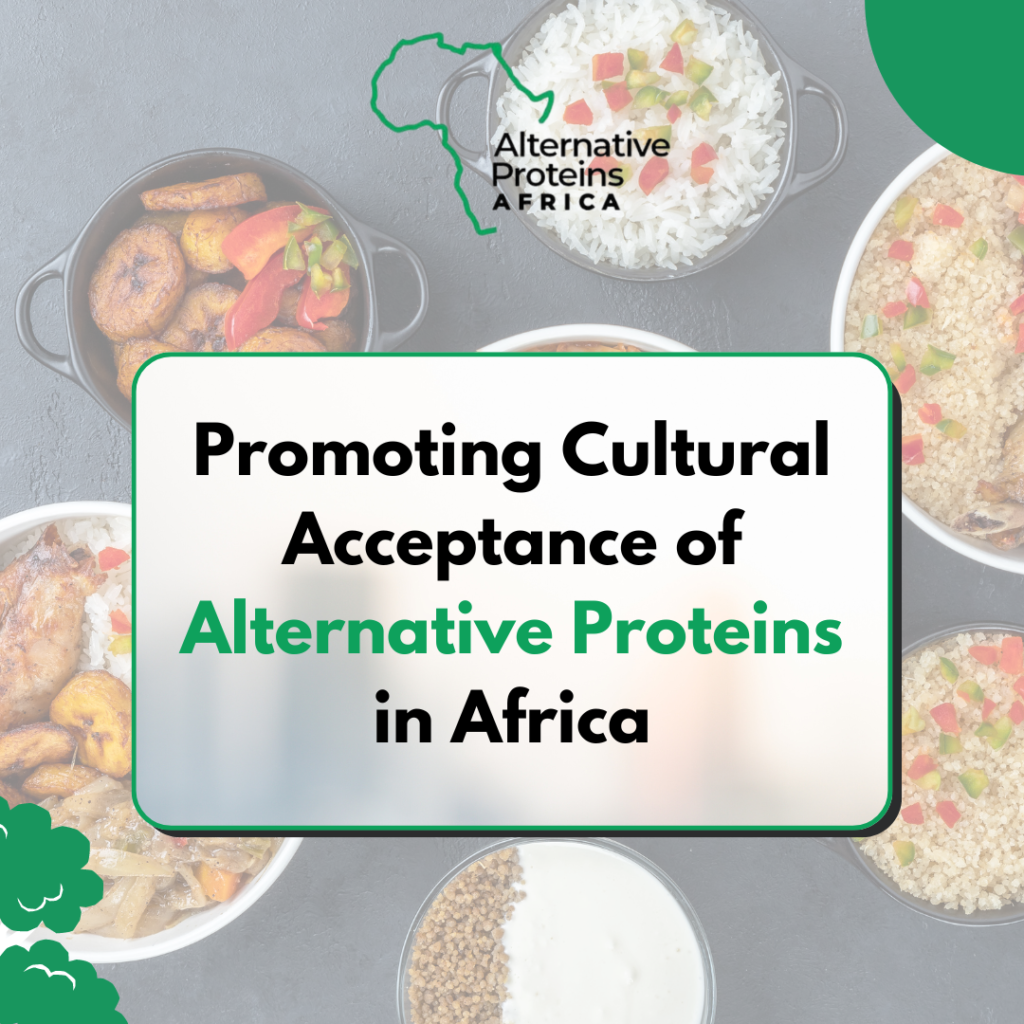
Food is considered an integral part of every culture, and Africa is no exception. The cultural significance of food on the continent necessitates that innovations in food development take this into account. Africa has for long depended on culturally relevant conventional protein sources, but with the rise in urbanisation, shifting dietary patterns, increasing demand for protein, and various environmental concerns, there is a need to adopt alternatives to animal-source protein. These alternatives offer promising and sustainable solutions to meeting the continent’s protein needs. This article examines the cultural implications of diets on the continent and explores different strategies for promoting the cultural acceptance of alternative proteins.
The cultural significance of meat in Africa
Africa has the potential to lead the charge in the transition to alternative proteins. However, in spite of the various benefits and potentials of alternative proteins, their acceptance within Africa remains a critical challenge. Several factors contribute to the low adoption of alternative proteins. One that peaks the attention of this article is the cultural significance of conventional meat consumption. People often view meat as a symbol of celebration and prosperity, which dominate festive occasions and daily diets. Although this cultural attachment challenges the widespread acceptance of alternative proteins, it also presents a significant opportunity.
Building acceptance by leveraging the cultural significance of food on the continent
The continent boasts some traditional diets and ingredients that are great sources of alternative proteins. Plant-based proteins, like legumes and grains, have been staples for years and are major components of diets. People have adopted various protein sources, which have become of great cultural significance. The cultural significance of food within the continent thus points out the need to incorporate culturally relevant alternative protein sources. One way to achieve this is by leveraging familiar foods and ingredients to produce alternative proteins that resonate with local context. Other ways include:
- Encouraging cultural integration: Traditional dishes, firmly rooted in African cultures, often serve as the basis for communal bonds and identity. By integrating alternative proteins into familiar dishes, we can uphold the cultural relevance of such diets while also enhancing their nutritional profile. For example, dishes like fufu, made from cassava, plantains, or maize, are common in West Africa. By incorporating protein-rich legumes like beans or cowpeas into these local diets, we can enhance their nutritional profile while maintaining their flavour and texture. Similarly, introducing plant-based meat substitutes to traditional dishes can provide a seamless transition.
- Promoting collaborative cooking and knowledge sharing: Collaboration between traditional cooks and modern chefs can yield exciting culinary creations that appeal to diverse people. We can improve the taste and nutritional value of traditional dishes by combining traditional cooking techniques with innovative ingredients. Events and practices such as cooking workshops and recipe sharing can encourage this kind of collaboration. Such collaboration can help foster a sense of pride in both traditional and modern dishes.
- Improving market accessibility: To promote widespread acceptance, it is important to ensure equitable access to alternative proteins. This requires addressing barriers such as affordability, availability, and distribution. Community gardens, and local markets can serve as accessible and inclusive sources of alternative proteins. Additionally, partnerships between producers, retailers, wholesalers, and food vendors can help expand the reach of alternative protein products, making them more accessible to consumers.
- Fostering education and awareness: Education plays a critical role in dispelling some misconceptions about alternative proteins. We can empower individuals to make informed dietary choices when we provide them with accurate information about the nutritional and health benefits, environmental impact, and cultural relevance of alternative proteins. Educational campaigns, cooking demonstrations, and interactive seminars can create opportunities for dialogue and learning, promoting an environment of openness and curiosity.
In summary, promoting the adoption of alternative proteins in Africa entails adjusting diets to suit cultural significance. By encouraging cultural integration, promoting innovative cooking practices, improving market accessibility, and fostering education and awareness, the continent can embrace a diverse range of alternative protein sources that are both healthy for humans and sustainable for the planet.

